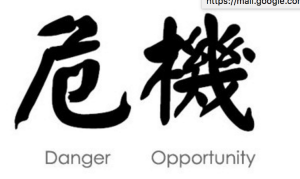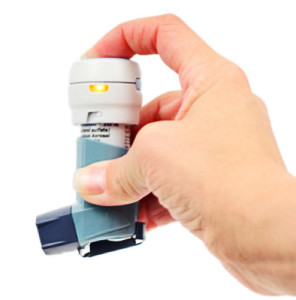Wow: as the old Dinah Washington ditty went, “What a Difference a Day Makes.” Since last Thursday, I doubt even the most diehard IoT zealots have thought about anything but Brexit and its implications. Now that we’ve had a little time to reflect and digest exactly how dire the possible problems are, I’d like to suggest we look at the bright side, and think the IoT could play a major role in improving everyone’s life in the future — not just the economic elites.

Wei ji: crisis combines danger and opportunity
I used to be a corporate crisis manager, called in when major corporations had done amazingly stupid things and their reputations and sometimes even their survival was in question. For those occasions, I kept a battered greeting card in my briefcase with the calligraphy for wei ji, the Chinese ideogram for crisis. I’d point out that it c0mbined danger — that was obvious! — with the less-obvious one for opportunity. I still believe that, even in the global confusion and concern resulting from Brexit, and I think there’s a role for the IoT in the new world order.
Above all, this should be a wake-up call for the global economic and political elites that, going forth, change must benefit everyone, not just them.
When it comes to the IoT, that means that it can’t be yet another excuse for automating jobs out of existence, but must instead be a way of empowering workers and creating new opportunities:
- One that occurred to me is near & dear to my heart, because I thought of a primitive version 25 years ago: creating 30″ high 4′ x 8′ garden “boxes” planted using Mel Bartholomew’s “Square Foot Gardening” methods, that would allow people worldwide to grow their own veggies in very small spaces. Add in IoT water sensors so that the beds could be watered precisely when and in the amount needed, and people everywhere could become self-sufficient (e-mail me if you’re interested in commercializing the approach)! It would be the cheapie’s variation on the neat, but costly, Grove Labs home ag solution.
-

smart asthma inhaler
Increasingly, global populations will be centered in cities, so the whole smart cities approach will improve everyone’s quality of living by cutting down traffic, reducing municipal operating costs, and improving public health. Even fat cats get upset when their limos are stuck in traffic, so this is a win-win.
One of my favorite examples of the smart city approach is the asthma inhaler cum GPS that automatically alerts public health authorities when a user — most frequently, sadly, a low-come minority person — uses the inhaler, allowing them to identify dirty air “hot spots” where cleanup efforts need to be focused. - I’ve always been impressed about the outside-the-box mobile device apps coming out of Africa that make their lack of conventional infrastructure into an advantage. One of the coolest examples of that when it comes to the IoT is the example INEX’s Chris Rezendes told me about: how Grundfos, the world’s leading pump company, releases the data from senors on its pumps for village water supplies in Africa and some smart guys have come up with an app that allows the village women to check in advance whether the village well is working before they trudge miles to get the watch (which, BTW, I hope they’re carrying back in these way-cool appropriate technology rolling water carriers, the “Hippo”).
- Also, the IoT could empower assembly-line workers and others if smart managers realize that they too should be among those sharing real-time IoT data: yes, a lot of IoT data can be used on a M2M basis so one machine’s status will regulate another’s, but there’s also a potential role for workers, with their years of experience and horse-sense, using that data to fine-tune processes themselves to optimize efficiency. Artificial Intelligence is great, but I still think there’s a role for enlightened humans, even if they don’t have a lot of education and prestige within the corporation.
Those are just a few ideas on how the IoT might be used to improve everyone’s lot in the coming years and undermine the current status quo that benefits only a few. Let me know if you have ideas on how to foster this revolution and make Brexit the catalyst for positive change.
